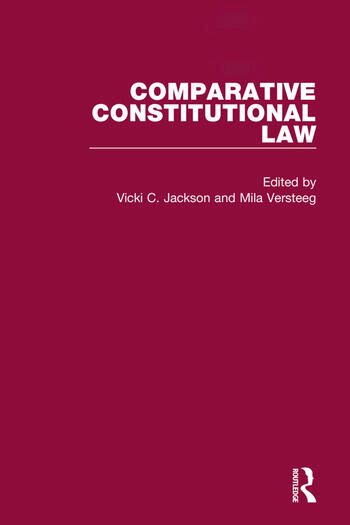We will be closed from 5pm Thursday 17th April for the Easter Bank Holidays, re-opening at 8.30am on Tuesday 22nd April. Any orders placed during this period will be processed when we re-open.

Once a mere appendage to constitutional law proper, research in comparative constitutional law has burgeoned in recent decades. Indeed, a growing tendency towards international borrowing and harmonization has been marked in many jurisdictions (even, tentatively, the United States), but it has not been uncontroversial, or uncontested.
Now, this new collection from Routledge’s 'Critical Concepts in Law' series meets the need for an authoritative reference work to help researchers and students navigate and make better sense of an abundance of scholarship in comparative constitutional law. The collection is made up of four volumes which bring together the best and most influential canonical and cutting-edge thinking. Topics include constitution-making and amendment; the different structural components of constitutional governance (such as the relationship of legislatures to courts and the effects of different methods of judicial oversight); the interaction of constitutional law with transnational sources of law; and theoretical and practical aspects of constitutional legitimacy.
With a full index, and thoughtful introductions, newly written by the learned editor, Comparative Constitutional Law traces the field's development and highlights the challenges for future explorations. The collection will be valued by legal scholars—as well as by political philosophers and theorists—as a vital and enduring resource.